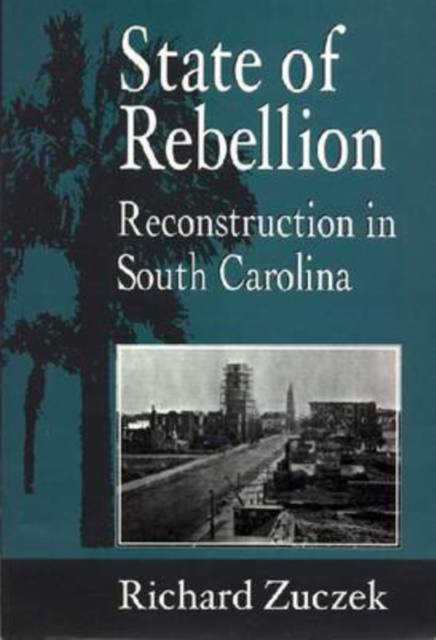
Bedankt voor het vertrouwen het afgelopen jaar! Om jou te bedanken bieden we GRATIS verzending (in België) aan op alles gedurende de hele maand januari.
- Afhalen na 1 uur in een winkel met voorraad
- In januari gratis thuislevering in België
- Ruim aanbod met 7 miljoen producten
Bedankt voor het vertrouwen het afgelopen jaar! Om jou te bedanken bieden we GRATIS verzending (in België) aan op alles gedurende de hele maand januari.
- Afhalen na 1 uur in een winkel met voorraad
- In januari gratis thuislevering in België
- Ruim aanbod met 7 miljoen producten
Zoeken
€ 46,95
+ 93 punten
Omschrijving
State of Rebellion recounts the volatile course of Reconstruction in the state that experienced the longest, largest, and most dynamic federal presence in the years immediately following the Civil War. Richard Zuczek examines the opposition of conservative white South Carolinians to the Republican-led program and the federal and state governments' attempts to quell such resistance. Contending that the issues that had driven secession-the relationship of the states to the federal government and the status of African Americans-remained unresolved even after Northern victory, Zuczek describes the period from 1865 to 1877 as a continuation of the struggle that began in 1861. He argues that Republican efforts failed primarily because of an organized, coherent effort by white Southerners committed to white supremacy. Zuczek details the tactics-from judicial and political fraud to economic coercion, terrorism, and guerrilla activity-employed by conservatives to nullify the African American vote, control African American labor, and oust northern Republicans from the state. He documents the federal government's attempt to quash the conservative challenge but shows that, by 1876, white opposition was so unified, widespread, and well armed that it passed beyond government control.
Specificaties
Betrokkenen
- Auteur(s):
- Uitgeverij:
Inhoud
- Aantal bladzijden:
- 276
- Taal:
- Engels
Eigenschappen
- Productcode (EAN):
- 9781570038488
- Verschijningsdatum:
- 22/04/2009
- Uitvoering:
- Paperback
- Formaat:
- Trade paperback (VS)
- Afmetingen:
- 152 mm x 229 mm
- Gewicht:
- 408 g

Alleen bij Standaard Boekhandel
+ 93 punten op je klantenkaart van Standaard Boekhandel
Beoordelingen
We publiceren alleen reviews die voldoen aan de voorwaarden voor reviews. Bekijk onze voorwaarden voor reviews.









